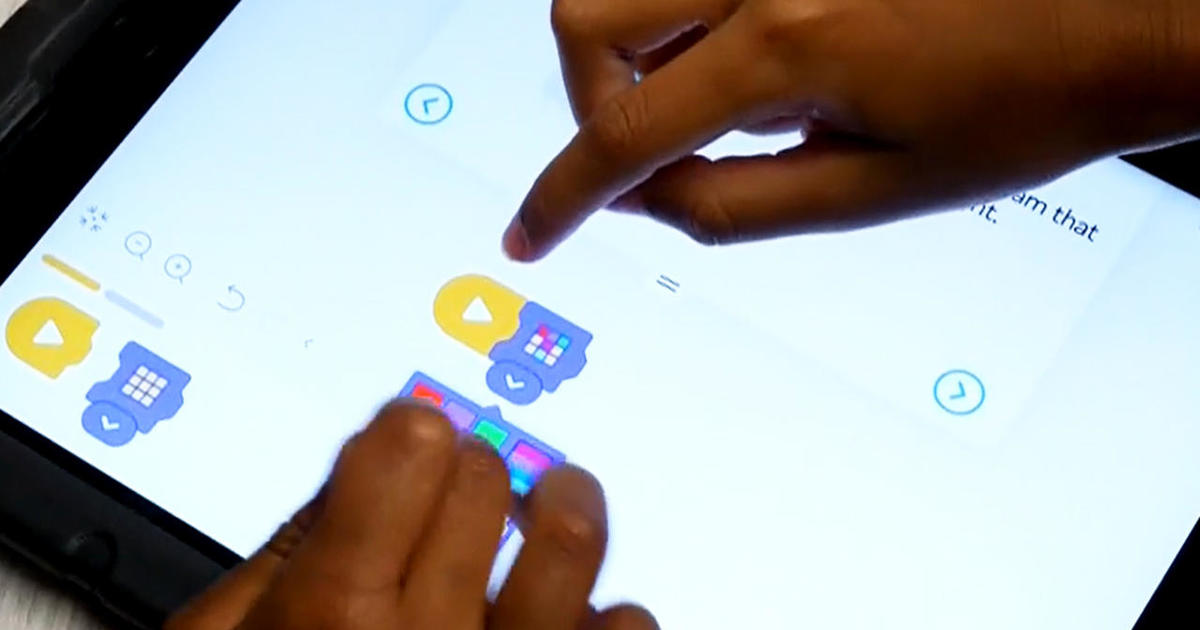The advent of artificial intelligence (AI) has sparked debates regarding its impact on creativity and critical thinking. While some educational institutions are choosing to ban the use of AI in classrooms, the Gwinnett County school district in Georgia is taking a different approach. They have implemented a comprehensive curriculum that integrates AI into all subjects, starting from kindergarten. This goes beyond traditional robotics and computer science classes, as teachers and students actively engage with AI in areas like English and art. The response from students, parents, and teachers has been overwhelmingly positive so far, although there is still much to be learned.
At Patrick Elementary School in Buford, Georgia, first graders are being introduced to programming through the use of Lego bricks. This creative problem-solving lesson not only familiarizes them with technology like iPads but also prepares them for the challenges and opportunities presented by the rise of AI. Even without necessarily understanding the meaning of “AI,” these young learners are already adept at using it. For instance, six-year-old Olivia went beyond the lesson and successfully programmed a sensor to respond to specific colors. She expressed enthusiasm for coding, noting that it allows them to build and do things they haven’t done before. This innovative approach is unique to Gwinnett County schools. About five years ago, the district decided to allocate some of its regular funding towards developing an AI-driven curriculum, initially starting with a new high school and eventually expanding to a middle school and three elementary schools. The program, known as Computer Science for All, aims to equip students with the necessary skills and problem-solving abilities for their future.
While AI is not always a constant presence in the classroom, there are instances where students get hands-on experience with robots, engaging in design, coding, and idea generation. One such example is Seckinger High School’s mascot, a robot jaguar named “Jessie.” In social studies classes, students utilize AI, such as ChatGPT, to analyze traffic data from various years and propose solutions for safer roads. Teacher Scott Gaffney believes that without this technology, the lesson would have taken significantly more time. He highlights how quickly students process information and how engaged they become when presented with real-time challenges. Considering the predictions that machine learning will continue to be a crucial aspect of the workforce in the future, it is vital for students to develop skills in this area.
In the art class down the hall, students were prompted to draw a sketch and then input a description of their artwork into an AI image generator. This led to discussions about whether the computer-generated works inspired them to modify their original designs. Opinions varied, with some students feeling that the AI did not help them achieve their desired outcome, while others acknowledged its usefulness in providing new perspectives or angles. However, when it comes to artistic integrity, the consensus is that AI art cannot be considered “real” art, as it essentially collages existing works together rather than creating something original.
The integration of AI into education raises ongoing debates about the line between AI-assisted learning and outsourcing. Teacher Gaffney was asked about concerns regarding the potential for students to use AI to cheat on their academic work as they become more familiar with it. In response, he referenced the initial worries about Google when it first emerged, yet it has not fundamentally compromised education. Although administrators recognize that there is still much to learn about AI, they prioritize ethical discussions surrounding its use. Sallie Holloway, the director of AI and computer science for the district, emphasizes the importance of allowing students to explore the problems they are interested in and the potential encounters they will face in the real world. This approach not only encourages autonomy but also lays a foundation for their future endeavors.
Join us throughout the week for our special series “School Matters” on “CBS Mornings” and “CBS Evening News with Norah O’Donnell,” where we delve further into the thoughts and experiences of students, teachers, and parents regarding education and AI.
Denial of responsibility! VigourTimes is an automatic aggregator of Global media. In each content, the hyperlink to the primary source is specified. All trademarks belong to their rightful owners, and all materials to their authors. For any complaint, please reach us at – [email protected]. We will take necessary action within 24 hours.


